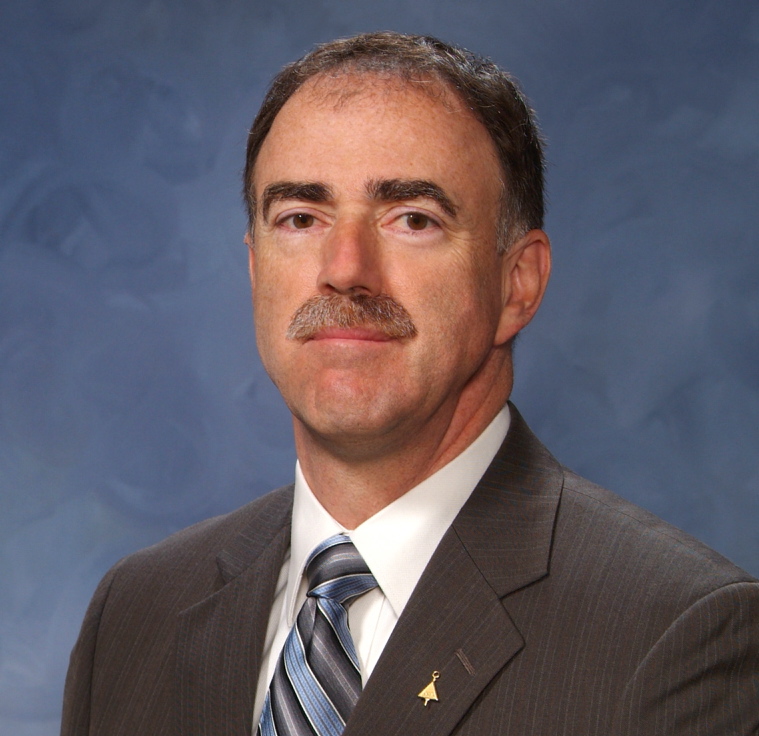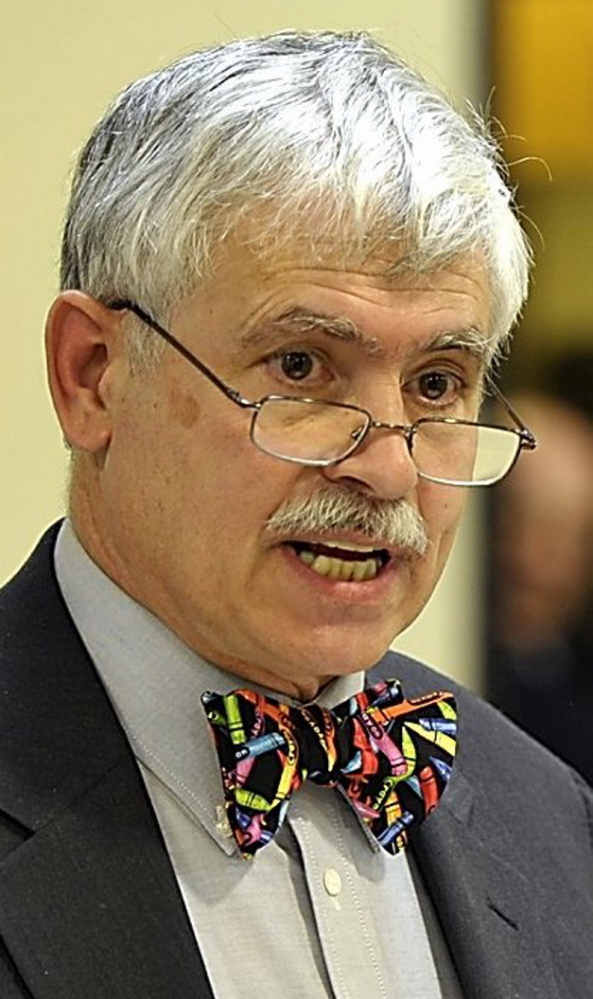AUGUSTA — Cooperation among Maine sheriffs has kept the state’s county jail system working despite significant challenges from crowding, complicated inmate needs and a state funding shortfall, members of the Maine Sheriffs’ Association told legislators at a breakfast meeting Thursday.
Sheriffs are doing more with less, but are glad to retain local control of the jails after years of turmoil under state oversight, Joel Merry, president of the Maine Sheriffs’ Association, told the group.
The 2008 jail consolidation was reversed last year when a new law gave control back to county governments, a move backed by the sheriffs’ association.
To a crowded room of legislators Thursday morning at the Senator Inn & Spa in Augusta, Merry, who is Sagadahoc County sheriff, said counties are doing more with less, but are glad to regain local control.
“It’s quite a tangled mess, but the resolve is that we will work together,” Merry said. “We are grateful to the Legislature for giving the jails back, because that’s what we asked for. We said we are able to do this. And I think that we have proven to you, at least over the last six months, that we are able to do this.”
Kennebec County Interim Sheriff Ryan Reardon said in an interview Thursday that his county’s 157-year-old jail on State Street in Augusta is dealing with crowding and has had to cut back on some programs, but the level of cooperation among sheriffs has increased tremendously since the law was enacted.
“We’re at the point now that we are in agreement on most things, cooperatively working together, and we are seeing great results,” Reardon said.
Sen. Tom Saviello, R-Wilton, said later Thursday he appreciated hearing from the sheriffs, particularly about how they’re managing the jails effectively without state oversight.
“The proof is in the pudding,” he said. “They talked about working collaboratively to solve their own problems.
“I really appreciate what these guys have done. They’re getting together, saying, ‘Let’s see what we can do together. You have a bed there, I have a bed there.’ Now they own it and they’re making it work.”
The law passed last July gave control of jails back to counties and eliminated the state Board of Corrections, which was set up when the system was consolidated in 2008 under the John Baldacci administration.
Most of the cost of jail operations is borne by county residents, although the amount that counties can raise to pay for jails is capped. Under the new law, $12.2 million was disbursed to the counties to help cover jail operations.
That amount is less than the jails got from the state under the consolidated system.
When asked by a legislator at Thursday’s meeting how much the jails needed, Merry said $14.6 million, the amount that was included in the original bill to reverse consolidation and was later reduced by the appropriations committee.
“That would at least put us to what was needed to get through fiscal year 2014,” Merry said.
On the other hand, the state could lift or reset the caps on how much property tax the counties can use to fund their jail operations and let local governments decide how to fund them, Merry said.
“We asked for the jails to come back. We have some ownership of it. We know we can’t rely on the state just to give us money,” he said.
“If there was some control given back to counties to fund the jail as they feel is necessary, I think that would go a long way to correcting this,” he added.
With reduced funding, jails have had to get rid of staff members and reduce programming, but sheriffs Thursday spent most of their time talking about solutions they’ve come up with to keep the system working and shied away from pressing legislators for more money.
Penobscot County Sheriff Troy Morton, who started his career as a corrections officer in 1989, said the Bangor jail is built to hold 157 inmates, but the average population in the last year was 174, and many inmates are housed in other county jails or are out on supervised release.
The number of inmates aside, corrections officers have to deal with diverse issues, including mental and physical health and substance abuse, that require a lot of staff time and specialization, Morton said. The Penobscot County Jail could be considered one of the largest detoxification centers in the state and almost acts as a triage for hospital emergency rooms because inmates have health problems that haven’t been addressed for years, he said.
Despite those issues, the jail has tried to maintain programs that help inmates connect with employment, housing and education after getting out or working on public service projects while incarcerated.
Bangor has become a transportation hub, so inmates housed at counties north and east of there can be collected at one point and taken to court appointments farther south in full transport vehicles.
After years of shuttling prisoners back and forth between jails and courts, the system has become a “well-oiled machine,” Morton said.
Cumberland County Sheriff Kevin Joyce said his county’s jail was facing a $1 million shortfall but was able to shift prisoners around and swap male prisoners for female prisoners from Kennebec County in order to shut down parts of the jail and reduce costs.
He estimated that 88 percent of the inmates he had at the jail in Portland had co-occurring mental health and substance abuse problems.
“It’s good to get tough on crime, but I think we have to get smart on crime, because getting tough on crime is really expensive,” Joyce said.
Saviello said hearing the sheriffs talk about such expenses — particularly those related to drug addiction — has inspired him to push once again for state expansion of Medicaid allowed under the federal Affordable Care Act. Such a measure, which would have extended MaineCare coverage to 60,000 low-income Mainers, was passed by the Legislature in 2014 but vetoed by Gov. Paul LePage, a Republican.
Saviello, who represents District 17, which covers northwestern Kennebec and southern Franklin counties, said expanding Medicaid coverage in Maine will help address some of the funding issues associated with drug treatment programs. Funding the programs would help people kick drug addictions and keep more people out of jail, he said.
“We have to figure out a way we can extend that (Medicaid), because it would help fund these (drug treatment) programs,” Saviello said, adding that he plans to introduce a carryover bill on Medicaid expansion as soon as next week. “I’m going to make that argument.”
Peter McGuire — 861-9239
Send questions/comments to the editors.







Success. Please wait for the page to reload. If the page does not reload within 5 seconds, please refresh the page.
Enter your email and password to access comments.
Hi, to comment on stories you must . This profile is in addition to your subscription and website login.
Already have a commenting profile? .
Invalid username/password.
Please check your email to confirm and complete your registration.
Only subscribers are eligible to post comments. Please subscribe or login first for digital access. Here’s why.
Use the form below to reset your password. When you've submitted your account email, we will send an email with a reset code.